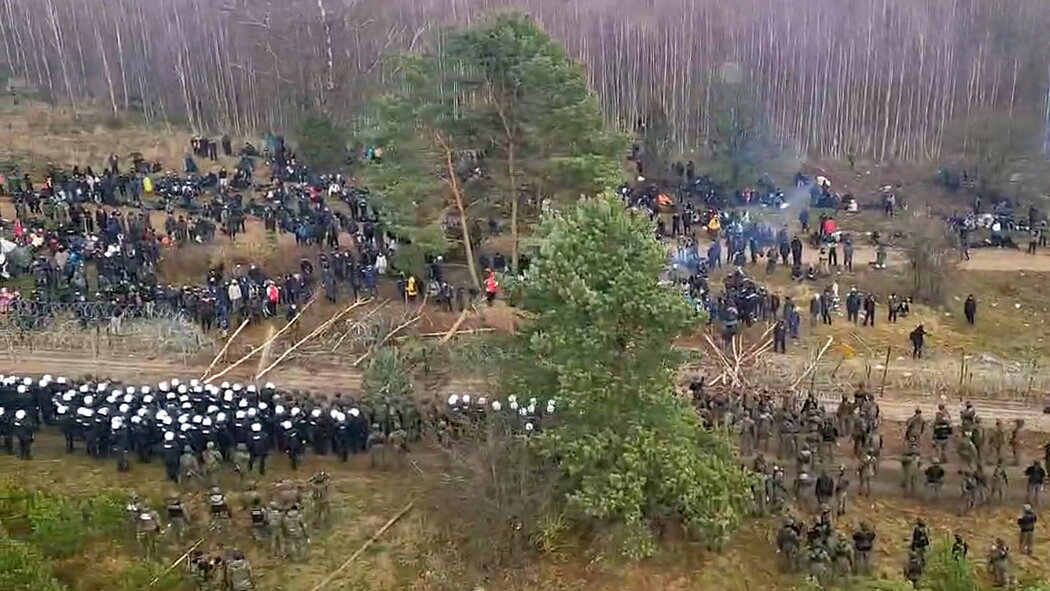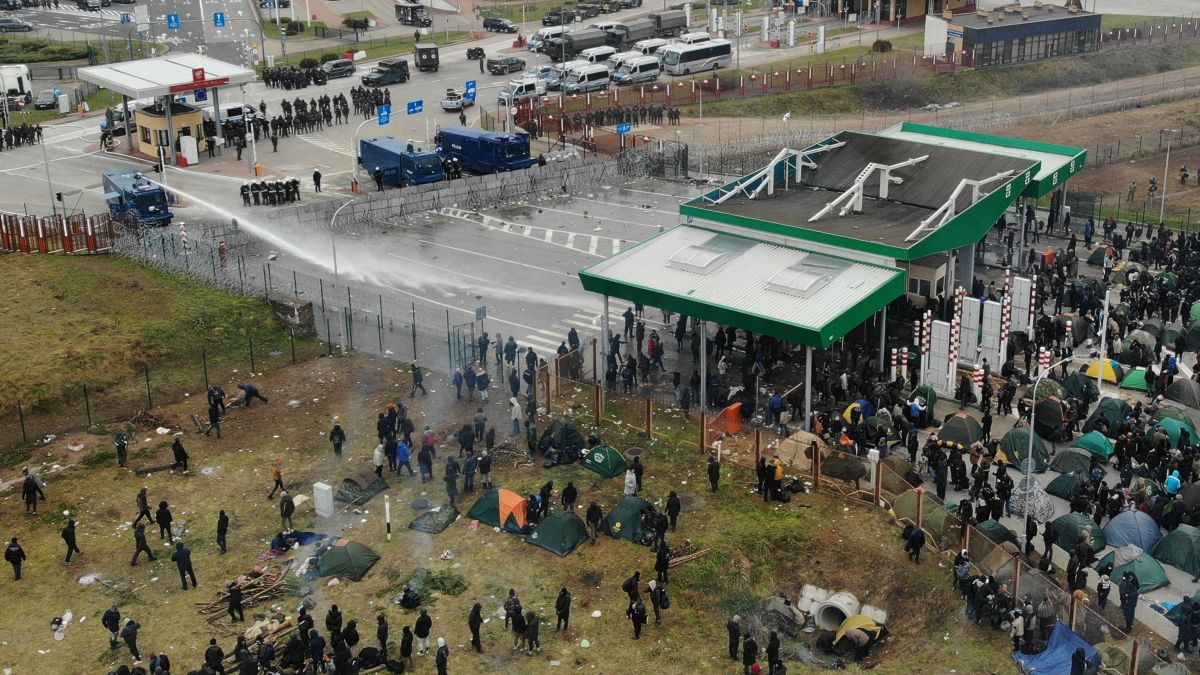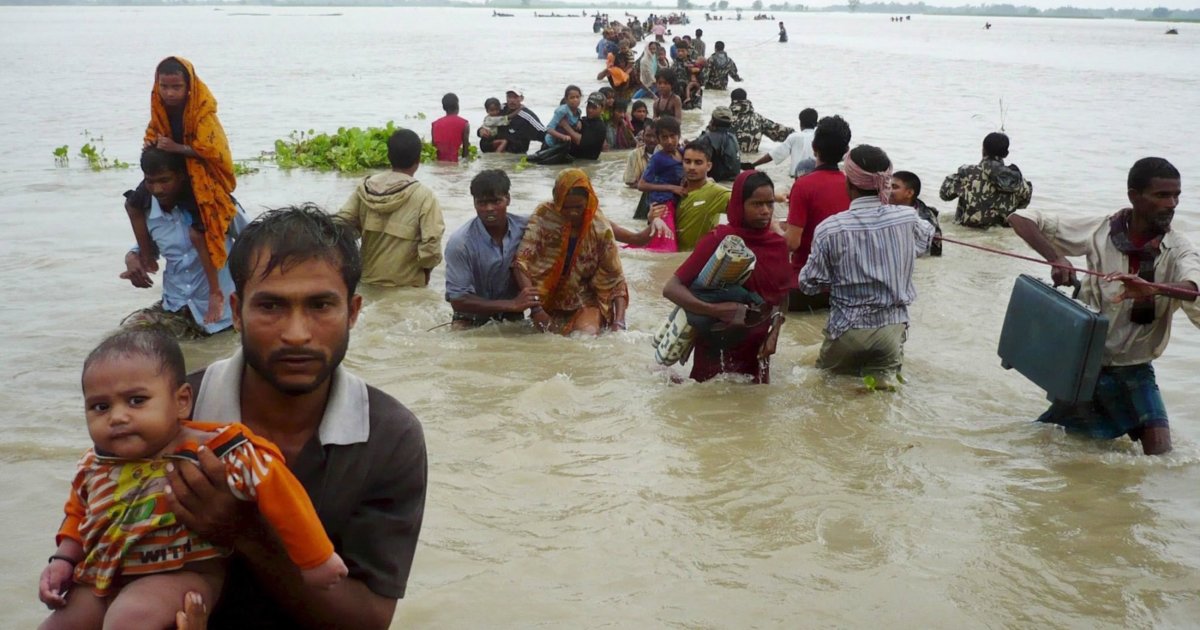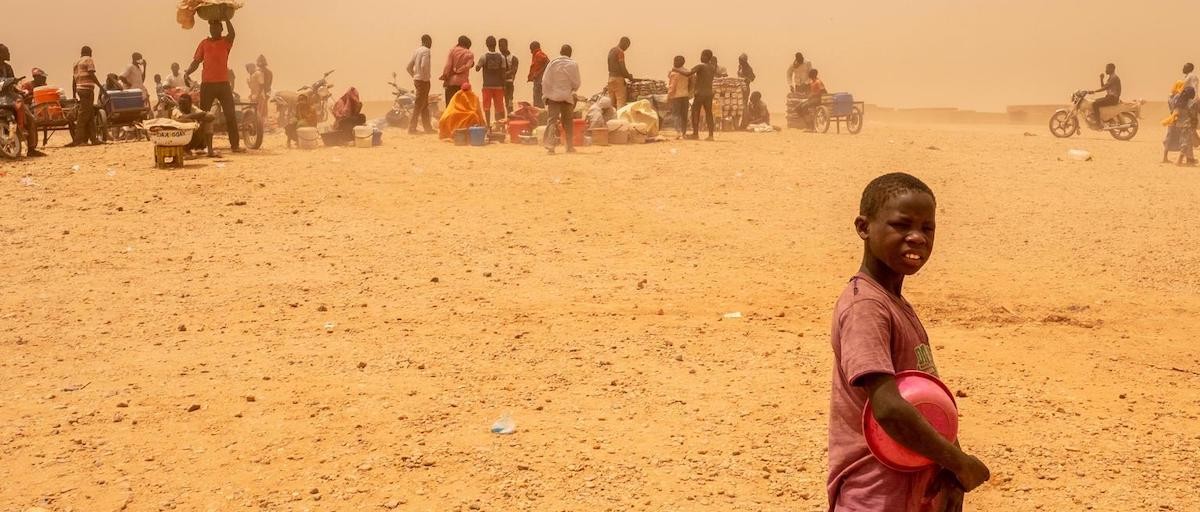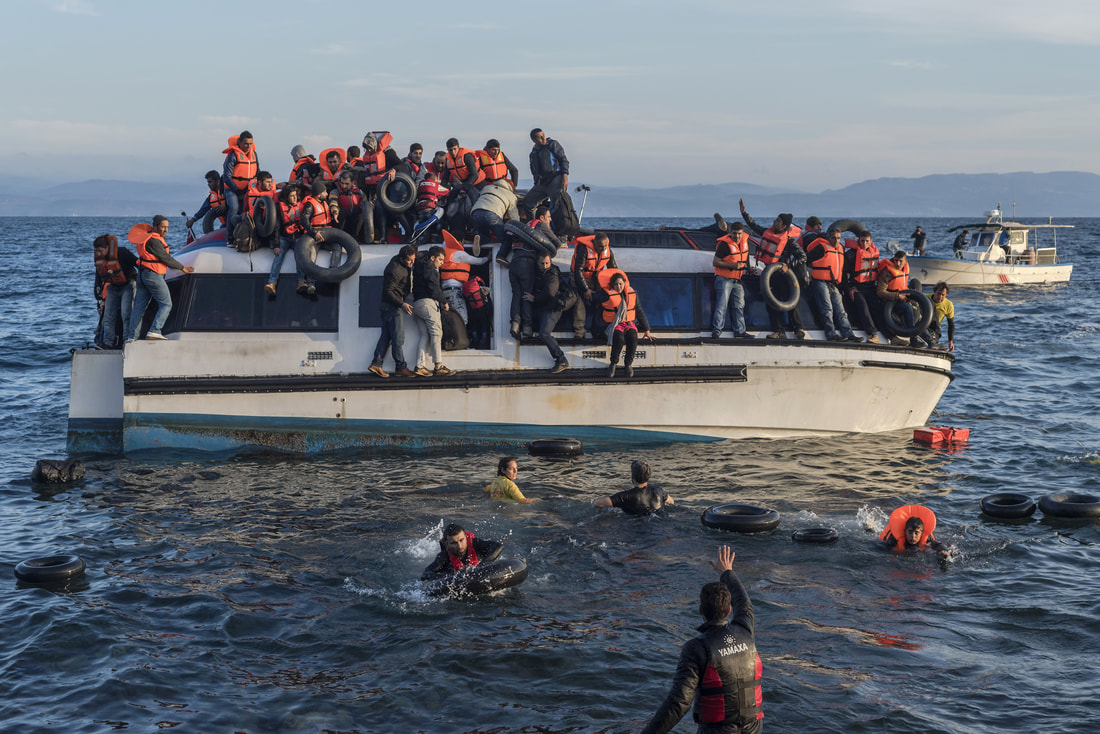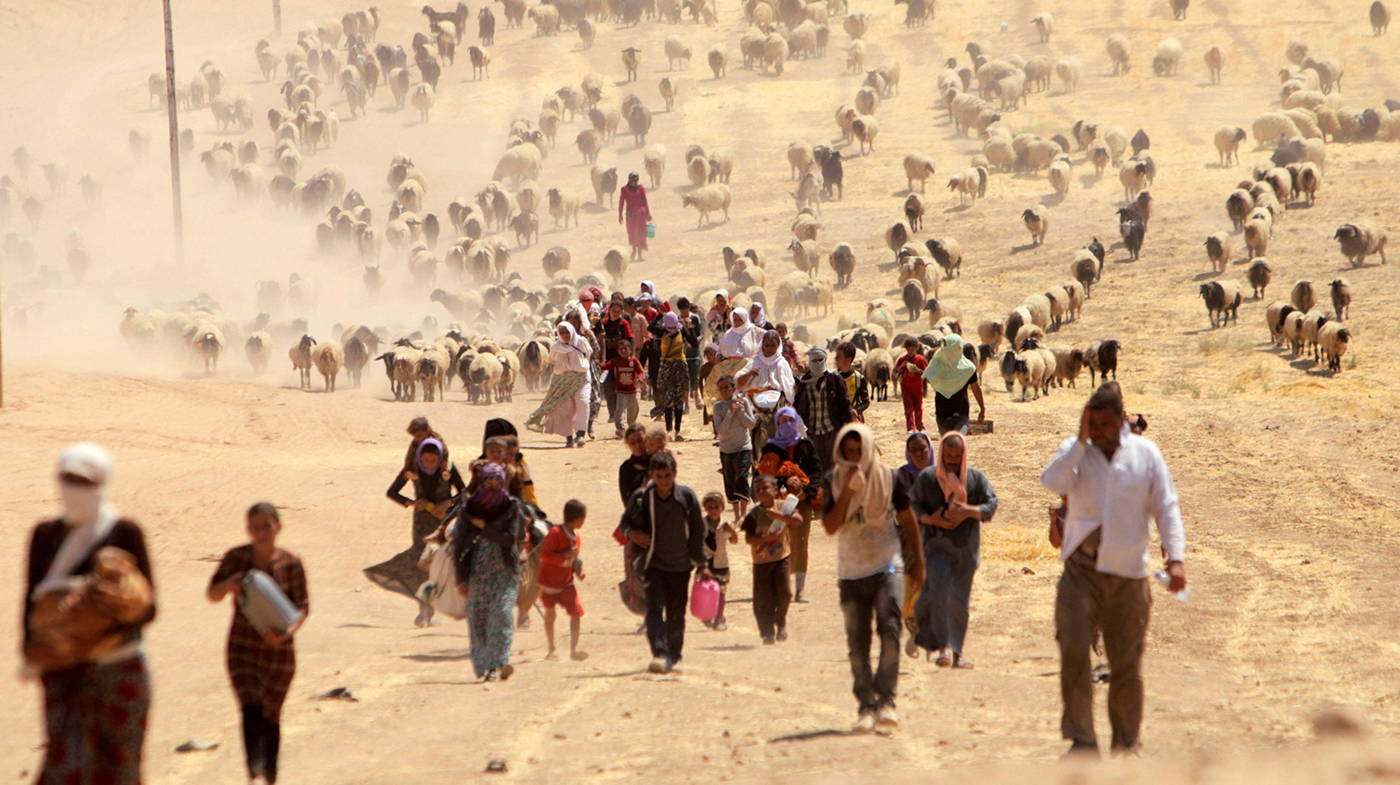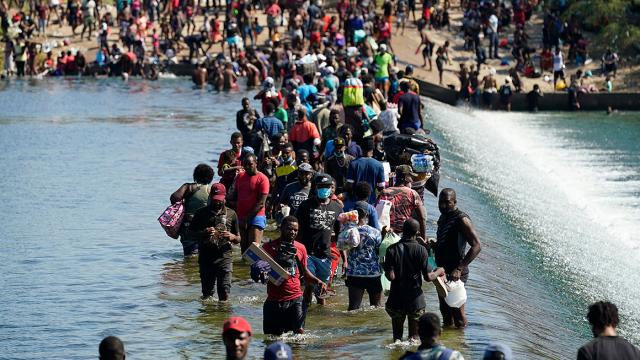
This is the fourteenth installment in a series about extending the Green New Deal to confront multiple global crises. Read Part I (Deconstructing environmental racism), II (Rural renewal), III (Upcycle the war machine), IV (GND manifestos), V (No oil bailouts), VI (No corporate ecocide), VII (Defund the police), VIII (Zero Covid approach: NZ), IX (Finnish equality lessons), X (Denmark stops drilling), XI (Costa Rica rewilding) and XII (Indigenous justice).
Walls, privatised detention centres and border patrols have killed more than 40,000 people since 1993. Many of them drowned while taking dangerous sea routes. “These are lives lost because of the European Union’s obsession with reinforcing borders instead of protecting people,” wrote Abolish-Frontex, a decentralised, autonomous network of organisations and individuals in an open letter to the EU in June.
Indeed, borders are deadly. Globally, more than 45,000 people were killed crossing them since 2014, the Missing Migrants project reported, and actual figures are expected to be far higher.
A U.S. Border Patrol memo from 1994 explained that putting people's lives in 'mortal danger' served to deter refugees. Three decades later, this form of contempt epitomises the Global North's hostile fringes that have quietly reshaped more mainstream ideology.
A particular example is the degree of atrocities committed by Libya, funded by the European Union in an effort to resist people's movements north.
U.S. child-migrant detention has continued under the Biden administration, while many forgotten people still remain imprisoned by Australia on Nauru, a Micronesian island.
Borders might be peripheral to nation states, but are central to the capitalist system. Private companies make billions of dollars running hostile border regimes. These are mostly barriers for people from the Global South, aside from those workers who are allowed to enter on the most precarious conditions when they take on exploitative work.
Meanwhile, rich people can move freely, as can resources and wealth extracted from the Global South.
It is in billionaires' interests to describe the situation as a “border crisis” – yet thinkers like Harsha Walia point out that this is really a crisis created by capitalism, war and climate change, which are increasing a sense of “global apartheid.”
Polish-Belarus border violence
The human crisis on the Belarus-Poland border is unique, but revealing.
In early November, people from southwest Asian countries, including Iraqi Kurds, Lebanese, Syrians and Afghans, tried to cross the border separating the two eastern European countries. Seemingly, Belarus invited them there, then encouraged and forcibly drove them towards the EU's border.
But Polish border guards violently drove the migrants back – and by leaving them stuck in forests facing sub-zero temperatures without any basic essentials, they caused people to die.
This is unique. Russian-backed Belarus appears to be retaliating against EU sanctions, implemented following the atrocities against Belarusians that stemmed from the “'severely flawed” 2020 election result in which President Alexander Lukashenko – who has ruled the nation with an iron fist since 1994 – claimed victory.
In response, the EU has hardened sanctions against Belarus.
Belarus can only commit these acts against migrants because Minsk knows the EU will prioritize borders above life. Europe’s tightening of sanctions is late: Lukashenko's dictatorship began 27 years ago, after all.
If Europe, the U.S. and its allies didn’t arm authoritarian regimes, invade countries for resources, and fight proxy wars, there wouldn’t be the life-threatening conditions in southwest Asia, the peoples' countries of origin, forcing them to want or need to leave.
People on the move are judged. The rightwing populist discourse sets up a trap, defining a few as refugees and many as “illegal,” an easy frame for victim blaming. Instead we need to question the system, then envision universal justice. We need to imagine a world where everybody can thrive living in their homelands, but also a world where everyone has the right to move freely. This need is amplified by escalating climate catastrophe.
Climate refugees
The climate crisis was the cause for the majority of the more than 40 million people displaced around the world in 2020.
Worse still, climate refugee figures will rise astronomically without meaningful response to the climate crisis. UNICEF reports that half of the planet’s children face extremely high climate risks. A projected 3 degree Celsius rise by 2070 is expected to make 3 billion people leave their homelands.
Yet despite much talk about action, there are still no international agreements recognising climate refugee status. Instead, pledges by highly polluting nations of the Global North are rarely met. For years, industrialized countries have promised to pay the Global South for the damage they have caused. Yet still today, the Global North spends more on borders than it does on reparations (let alone the military and fossil subsidies).
We need to think about how money gets spent. Funding needs to go to sea walls to protect low-lying places, especially in the Global South, not walls. But more broadly this is about values.
The narrative about climate refugees and refugees more generally is that they are a threat. We need to reject this narrative about borders and national security. What borders secure is a world where the most vulnerable are demonised, creating an opportunity to attack domestically vulnerable groups. Instead, we need to value people – everywhere.
The right to stay and the right to move
Nation-states collectively failing to recognise climate refugees is unsurprising. Governments are a steering wheel – like a destructive SUV killing people and the planet, with corporations driving. But there is still momentum and plausible pathways to enshrine this right.
The UN Human Rights Committee recognised climate-displaced refugees in 2021, a measure which, although not binding, opens the door for future legal challenges.
Further agreements offer recourse, too, such as the Carribean free movement agreements facilitating sanctuary from hurricanes. Likewise, the African Union charter has public disorder clauses with potential climate disaster applications.
Nations, autonomous areas and cities have also made refugees welcome. Overall, the Global South accepts the majority of displaced people. The autonomous area of Rojava in Syria is a case study in humanitarian practice, while sanctuary cities defy hostile national governments in the Global North.
Struggling in all political spaces – from the international sphere to courts and municipalities – is vital. Important actions are being taken by individuals, activists and non-governmental organizations, like those keeping people alive on the Belarus border or rescuing people in the Mediterranean.
Making change happen in a world destroyed and controlled by corporate power is an obstacle discussed in the excellent Climate Justice in a Global Green New Deal, by Harpreet Kaur Paul & Dalia Gebrial.
This inspiring book suggests ways to move beyond a world of deadly borders. In it, the authors argue that we must start talking about the right to stay alongside the right to move; the need for an intersectional approach, especially learning from the Covid-19 experience and not letting another crisis devastate already highly precarious and exploited populations; and the need to frame climate migration as part of the reparations discussion.
Furthermore, the book suggests these changes aren’t only about reframing the border issue and creating red lines. Rather, the recommended principles must become guiding principles for all levels of politics, not least collective organising and direct actions.
To return to where we began, it is people taking concerted action that can deconstruct deadly borders.
Read Part I (Deconstructing environmental racism), II (Rural renewal), III (Upcycle the war machine), IV (GND manifestos), V (No oil bailouts), VI (No corporate ecocide), VII (Defund the police), VIII (Zero Covid approach: NZ), IX (Finnish equality lessons), X (Denmark stops drilling), XI (Costa Rica rewilding) and XII (Indigenous justice).

